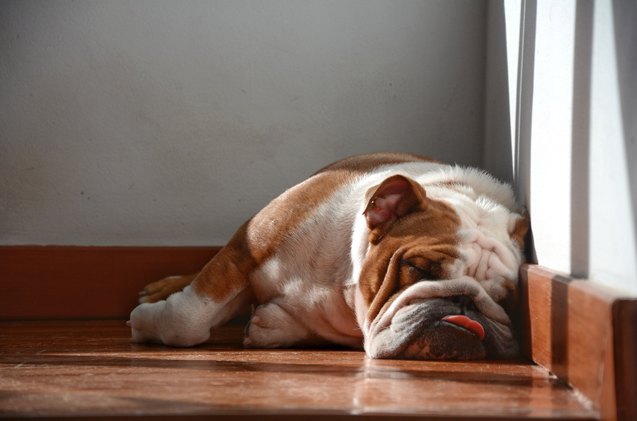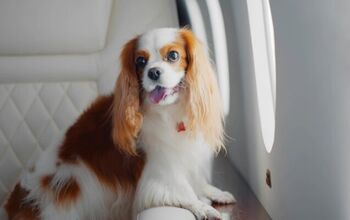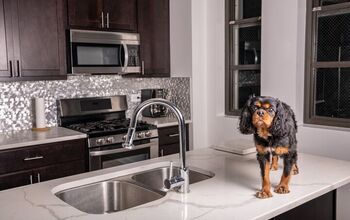What Causes Dog Snoring?

Many pet parents treat their dogs like children. They give them a fancy bed to sleep in, a gourmet diet, and all of the best toys. So, when a dog starts to do things that humans do, these pet parents think of it as cute rather than a cause for concern. Dog snoring is one of these things that many pet parents laugh off without really thinking about the cause of the behavior or its potential for being dangerous. Keep reading to learn what causes a dog to snore and whether it is something to be concerned about.
Related: Top 10 Dog Breeds that Snore [Video]
What Causes a Dog to Snore?
The things that cause dog snoring are often the same things that cause a person to snore – an obstructed airway or narrowed windpipe. Snoring is simply a sound produced by vibrations in the throat which can result from a variety of different things, primarily airway obstructions. Here are five of the most common causes of dog snoring:
- Genetics
- Allergies
- Nasal obstruction
- Obesity
- Medications
Dogs with flat facial structures – like Pugs, Pekingese, and Shih Tzus – are called brachycephalic breeds because they often exhibit anatomical abnormalities which affect their breathing. Narrowed nostrils, an elongated soft palate, and a narrow trachea can all cause airway obstructions which might inhibit normal breathing and cause snoring. Another potential cause for snoring in dogs is allergies – if your dog is sensitive to dust, pollen, or smoke, inhaling these allergens could cause irritation or inflammation in the throat which might cause him to snore.
Related: Do Cats Snore?
Even if your dog isn’t allergic to dust or dirt, foreign materials can clog your dog’s nasal passages and cause him to snore. If he has a cold or a respiratory infection, excess mucus in the airway and nasal passages could cause snoring as well. Dogs that are overweight or obese are also more likely to snore because their excess body weight produces extra throat tissue which can block the airway. Finally, certain medications can cause the muscles and tissues in your dog’s throat to relax, blocking his airway during sleep and causing him to snore.
Should I Be Worried About My Dog Snoring?
There are many reasons why your dog might be snoring and not all of them are innocent. In fact, some causes for snoring are very dangerous and should be cause for concern. For example, if your dog is a brachycephalic breed he is not only prone to snoring – he may also have a reduced tolerance for exercise and heat. Dogs with flat faces should not be subjected to rigorous exercise and they have a high risk for heat stroke. If your dog’s snoring problem is due to his weight, you should definitely be concerned – obesity can greatly increase your dog’s risk for developing other serious health problems. Snoring may also be a sign of dental health issues, respiratory infection, or a foreign object in the throat.
If your dog snores on occasion, it is probably nothing to worry about. In cases where your dog suddenly develops a habit of snoring and it doesn’t go away, you may want to talk to your veterinarian. Respiratory problems have the potential to be very dangerous, so don’t ignore them!

Kate Barrington is the loving owner of two cats (Bagel and Munchkin) and a noisy herd of guinea pigs. Having grown up with golden retrievers, Kate has a great deal of experience with dogs but labels herself a lover of all pets. Having received a Bachelor's degree in English, Kate has combined her love for pets and her passion for writing to create her own freelance writing business, specializing in the pet niche.
More by Kate Barrington























